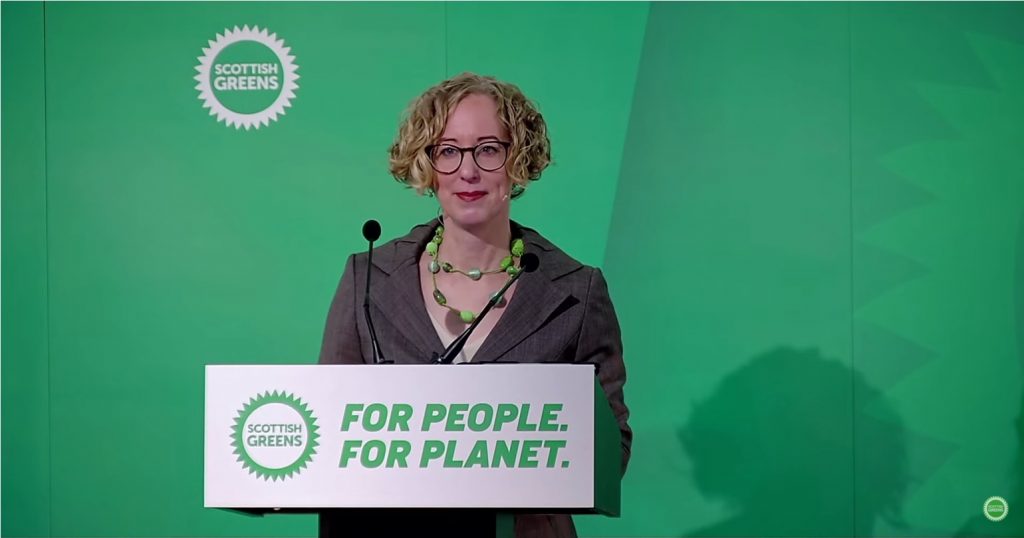What happened to the Green Party of 2015?

The Green Party of England and Wales are the only political party I have ever joined. I signed up briefly as a much brighter eyed and bushy tailed sixth form student. Now, in what might be the most important election for securing climate justice, I can’t help but reflect on that time.
In the 2015 election I was one of many young people within the ‘green surge’. The public atmosphere was pretty grim. The Conservatives had just completed five years of Liberal Democrat enabled austerity. The Labour party was unable to commit to any radical changes in policy, and Miliband was unfairly attacked by the press. UKIP were at the zenith of their power, with regular loud television appearances.
The Green Party of England and Wales attracted me for three reasons. Firstly, it had a deep commitment to anti-austerity economics and workers’ rights. Secondly, the party was unapologetically internationalist. And finally, the party held an appropriate understanding of the need for climate justice. At the time, they seemed alone in holding these views.
I ultimately drifted away from the party and let my membership lapse. This is no comment on how the 2015 election went. Instead, like many young people, I became convinced the only way to win environmental victories was outside parliament.
The recent manifesto announcements seem to confirm that these radical commitments are still held. This was a breath of fresh air. Frankly, since 2015, these elements have seemed increasingly side-lined in the party’s public image.
Anti-austerity, pro-people
Most leftists I meet and work with tend to agree on one thing about 2015. That the Green Party of England and Wales was right to oppose austerity and to demand radical economic alternatives. When no one was willing to fight the economic dogmatism of the Conservatives, the Green Party stood strong.
The public rejection of austerity politics has defined the current election. The Conservatives are leaping over themselves to claim to be investing, often only to patch over their own cuts. Labour’s policies are bold, and demand renationalisation of key elements of the economy. It’s clear the austerity project failed to stick. In fact, the only party committed to running budget surpluses, against all economic logic, is the Liberal Democrats.
Which is why it has been worrying to see the Green Party of England and Wales increasing tendency to appear in public along with the Liberal Democrats. Firstly, as part of the broader, increasingly single-minded, obsession many have with focusing politics on Brexit. Secondly, as part of the recent electoral alliance ‘Unite to Remain’.
If I attempted to tell ‘2015 me’ that in less than five years Green politicians would be encouraging me to vote for a Conservative-Lib Dem like Sarah Wollaston, I probably couldn’t finish the sentence. It would seem too much of a sick joke. Never mind encouraging a vote for the Liberal Democrats precisely when they have just announced one of the most-regressive budget policies in recent memory.
Now, the party are not endorsing the Liberal Democrat’s policies, simply standing aside to prevent splitting the remain vote. However, this seems a nebulous difference in the public sphere. The difference between standing aside for a candidate and endorsing that candidate’s party policy sappears thin. It’s not supporting budget surplus austerity policies, just getting candidates in parliament who will vote for them.
United for internationalism?
The Green Party of England and Wales’ longstanding commitment to internationalist policies, and support for the movement of people remains unique. Most people know the Green Party of England and Wales do stand for free movement, for the abolition of the Home Office, and more.
But then we have the same problem as above, the party is advocating voting for figures like Wollaston and others who were part and parcel of instituting the hostile environment policy. Just like with the anti-austerity policies, this active forgetfulness seems to cross a line for someone watching outside the party like me. There is a difference between the Liberal Democrat’s narrow support for a European movement of peoples, and the demand for a radical approach to immigration.
Furthermore, it’s clear the Green Party of England and Wales has significant voices within it who oppose their progressive immigration policies. Rupert Reed, whose profile has risen with XR, has been quite explicit in advocating regressive views on migration. How can such well-known figures within the party oppose something so central to the ethics of green politics? From the perspective of someone no longer in the party, it seems strange to now see him so often promoting the party’s policies when these views are public.
Climate Crisis Point
When the EU referendum and Scotland were dominating the 2015 election, it was annoying to be an environmentalist. No one wanted to talk about the climate crisis, until Natalie Bennett repeatedly used her opportunity to. It goes without saying really that the green party of any nation usually has the most robust approach to ecological collapse.
But again, I think the positioning of the message around Brexit, and the continued focus on doing so, has had a detrimental effect on climate action. Just when a green party should have been standing up to demand global action, the Green Party of England and Wales has appeared to base their messaging more in relation to Europe.
Despite having Caroline Lucas in Parliament, there was a two-year gap where no party debated climate change. It took actual children coming out on the streets for the party to leverage the very power it said it would leverage for the climate crisis with a Green MP. From a youth climate activist perspective, it seems difficult to separate the Green Party of England and Wales from the other NGOs whose passivity pushed the need for action onto young people.
And then, again, the support for the Liberal Democrats in many constituencies is a huge issue. The difference in commitment on the environment is vast, and not hard to ascertain. Why bolder commitments on the environment were not central to any electoral pact is beyond me.
A tale of two elections
On the issues of anti-austerity, internationalism, and climate change, the Green Party of England and Wales still has excellent policies and principles. But as someone watching from the public, not following the ins and outs of each position, there has been a collapse in radical messaging.
The willingness to join in projects like ‘Unite to Remain’ for tactical gains cannot be excused. The three principles that attracted me in 2015 are at the core of radical green politics. Ideass as important as this, central to keeping the left alive in 2015, were never designed to be swallowed.
In 2015 I could believe the Green party of England and Wales was committed to international, radical, green policies. I find myself for the first time in my life unable to trust the manifesto. If these principles could be swallowed for some short-term political project with two other parties, what else is fair game?
I don’t think I’m alone in seeing a collapse in the outwards radicalism of the Green Party of England and Wales. A huge base of possible support has been pushed away from the party over the last few years. Solidarity to those on the left of the party trying to recentre these messages. I hope they can bring back the spirit of 2015, we may need it in the coming years.




funny i wondered what happened to the Green Party of 2005 that did nt have a leader and also had a more explicitly anti-capatalist message. What you are discovering is that politics is hard and things are not as simple as they appear….
I would like to correct you that the deal with the Lib dems is in a small number of seats not many. Im against all party deals what they are is gaming the system to try and get a more proportional result in the absense of proportional repreasentation. I dont like gaming the system i prefer just to vote for the best candidate. Im not in one of the unite to remain seats but i would have made my own decision who to vote for or if to vote at all in those seats.
Except the analysis by the IFS has just shown that, despite the commitment to run a budget surplus (not the same thing as austerity), the Lib Dem manifesto is more progressive and redistributive than Labour’s and will help the poorest households more than Labour’s manifesto will.
I’m afraid the central premise of this argument is bunkum.